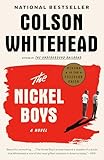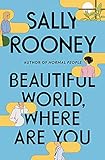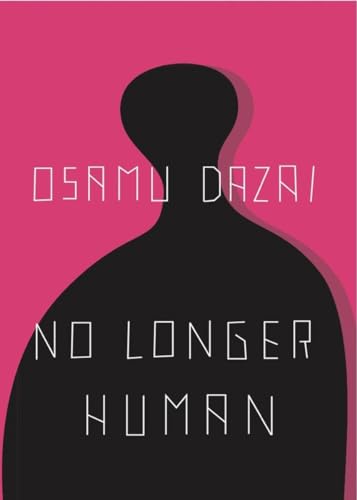I was recently alerted that there was a piano out for free down the block. After much huffing and straining, and tearing up a large swath of grass in my backyard, a neighbor and I managed to get it into my office without mangling our feet. Had I ever wanted a piano before? No. However, I was taken by the fantasy of plunking away on it in between dashing off sentences of incredible depth and artistic feeling. When I brought my wife out to see the piano, she stopped, five feet shy of the door.
“It smells,” she said. “Doesn’t it smell pretty bad?”
I hadn’t noticed. But I leaned in and inhaled and yes, there it was, scent like one of those old “touch-me” pelts of abused animal fur you find in well-meaning interpretive centers. And yet, the thing was just so massively heavy, there was no way I was ever going to move it again.
And so it also is with my year in reading. Some books are the piano, some books are the smell, but all of them will be with me, forever, in this strained second year of our lord, the pandemic.
No Longer Human by Osamu Dazai was a brutal, dark, and frantic novel that chimed a little too perfectly with my charcoaled soul. That was a tough week in the house as my wife inquired what was wrong and I stared into my coffee. Following Ōba, a talented young man, as he slides into depravity, we see him abused and abusive. By the end, as he relapses into hopeless, dark, destructive behavior yet again, I felt implicated, too. As though, had I read with a little more care, perhaps things might have turned out differently for Ōba.

 Then there was Night Boat to Tangier by Kevin Barry and Leave the World Behind by Rumaan Alam. Two extended mood-riffs, each the kind of book dangerous for a writer to pick up. The writing was just too easy to slip under the spell of and imitate. Or attempt to. Though Leave the World Behind has a definite ticking clock, I found myself drawn more to the virtuosic solos of description. The modern crisis of your GPS losing its chorus of satellites en-route; the false armor of filling your cart with artisanal meats and cheeses; the playacting of being new people in a vacation house; the line: One dick, two dicks, three dicks, four! The writing felt tossed off in the best way, like Alam could do this all day. All of it seemed to point to the inanities we fill our time with while the world heats up under our feet. We are the frogs, or we are the water, but we definitely have Internet connections.
Then there was Night Boat to Tangier by Kevin Barry and Leave the World Behind by Rumaan Alam. Two extended mood-riffs, each the kind of book dangerous for a writer to pick up. The writing was just too easy to slip under the spell of and imitate. Or attempt to. Though Leave the World Behind has a definite ticking clock, I found myself drawn more to the virtuosic solos of description. The modern crisis of your GPS losing its chorus of satellites en-route; the false armor of filling your cart with artisanal meats and cheeses; the playacting of being new people in a vacation house; the line: One dick, two dicks, three dicks, four! The writing felt tossed off in the best way, like Alam could do this all day. All of it seemed to point to the inanities we fill our time with while the world heats up under our feet. We are the frogs, or we are the water, but we definitely have Internet connections.
Night Boat to Tangier was easy and thrilling in a different, just as powerful way. I kept finding myself thinking, You’re allowed to do that? A main insecurity of mine is that I don’t have an MFA. And so I often wonder if I have the “right” depth of reading. So, perhaps, Barry’s casual, folkloric, wildly digressive style is old hat, but I was floored. The book is like sitting with your favorite uncle and trusting totally and completely that his meandering yarn will eventually wrap you up and deliver you someplace worthwhile. And, even if it doesn’t, which for me, I got no place especially far, it doesn’t really matter because the language was enough.


 I tore through Nine Perfect Strangers by Liane Moriarty and scolded myself for being a snob about her before. I struggled with Leo Benedictus’s Read Me, wondering where the line for evil goes from scary to boring. I read Miracle Creek by Angie Kim and Your House Will Pay by Steph Cha back to back and took a deep breath, because both are just so fucking good.
I tore through Nine Perfect Strangers by Liane Moriarty and scolded myself for being a snob about her before. I struggled with Leo Benedictus’s Read Me, wondering where the line for evil goes from scary to boring. I read Miracle Creek by Angie Kim and Your House Will Pay by Steph Cha back to back and took a deep breath, because both are just so fucking good.


 There are those books that you read and find you cannot stop telling people about. That’s The House of Broken Angels by Luis Alberto Urrea. That’s Such a Fun Age by Kiley Reid. That’s The Nickel Boys by Colson Whitehead. And speaking of Whitehead, there’s a shopworn wisdom sports podcasters like to repeat about great players in the midst of their prime: don’t take them for granted. Whitehead has somehow figured out how to saddle and break a lightning bolt. I heard him say in an interview that some years back, he had a string of ideas all at once, and that the books we are reading now, from Underground Railroad to Harlem Shuffle, are the result of that brainstorm. What a legend. Let’s not take him for granted.
There are those books that you read and find you cannot stop telling people about. That’s The House of Broken Angels by Luis Alberto Urrea. That’s Such a Fun Age by Kiley Reid. That’s The Nickel Boys by Colson Whitehead. And speaking of Whitehead, there’s a shopworn wisdom sports podcasters like to repeat about great players in the midst of their prime: don’t take them for granted. Whitehead has somehow figured out how to saddle and break a lightning bolt. I heard him say in an interview that some years back, he had a string of ideas all at once, and that the books we are reading now, from Underground Railroad to Harlem Shuffle, are the result of that brainstorm. What a legend. Let’s not take him for granted.

 Chinookan Peoples of the Lower Columbia by Robert Boyd, Kenneth Ames, and Tony Johnson painted a vivid picture of some of the first peoples to live in Oregon. I was humbled as I read about the expert ways they hunted whales, caught salmon, and built homes.
Chinookan Peoples of the Lower Columbia by Robert Boyd, Kenneth Ames, and Tony Johnson painted a vivid picture of some of the first peoples to live in Oregon. I was humbled as I read about the expert ways they hunted whales, caught salmon, and built homes.
The Story of a Marriage by Geir Gulliksen was both the inspired piano keys and the funky pelt smell in one. I was devastated, frustrated, and ultimately very moved by the introspective dive into the darker realms of fantasies and delusions. The narrative skips around the timeline as Jon tells us about leaving his first wife for Timmy, and then, perhaps out of overconfidence, guilt, or naivety, is left by her after encouraging a flirtation with a neighbor. If it lingered a little too long, even at a brisk 160 pages, but perhaps that had to do more with my own squeamishness re: self-destructive behavior than any shortcoming of the book.
 Speaking of self-destructive, holy shit, Melissa Broder’s Milk Fed kicked me down and then picked me back up again. The main character, Rachel, is obsessive about her eating to the point of comedy. Which is appropriate because, in the book, she is a stand-up comic and very funny. I found myself actually participating in the does-that-ever-really-happen practice of lol-ing. There’s hot sex, send-ups of our obsession with fame, and even a real-life (maybe) golem. What I didn’t expect was the surprisingly poignant finish.
Speaking of self-destructive, holy shit, Melissa Broder’s Milk Fed kicked me down and then picked me back up again. The main character, Rachel, is obsessive about her eating to the point of comedy. Which is appropriate because, in the book, she is a stand-up comic and very funny. I found myself actually participating in the does-that-ever-really-happen practice of lol-ing. There’s hot sex, send-ups of our obsession with fame, and even a real-life (maybe) golem. What I didn’t expect was the surprisingly poignant finish.
 James Tate Hill’s memoir, Blind Man’s Bluff, was exceptional. We see Hill as a young man, losing his sight to Leber’s hereditary optic neuropathy. In many ways, it couldn’t have happened to a worse person. Obsessed with TV and acutely self-aware of his standing in the social order, his reaction to the loss of his sight is to simply fake being able to see. In one incredibly powerful scene, his ex-wife confronts him about his faking it. She won’t lie for him anymore. On the other hand, Hill handles the hardship with an earned grace and easy-going charm. He isn’t someone to feel sorry for, he’s going to figure it out, and eventually does, though without the treacly beam of light.
James Tate Hill’s memoir, Blind Man’s Bluff, was exceptional. We see Hill as a young man, losing his sight to Leber’s hereditary optic neuropathy. In many ways, it couldn’t have happened to a worse person. Obsessed with TV and acutely self-aware of his standing in the social order, his reaction to the loss of his sight is to simply fake being able to see. In one incredibly powerful scene, his ex-wife confronts him about his faking it. She won’t lie for him anymore. On the other hand, Hill handles the hardship with an earned grace and easy-going charm. He isn’t someone to feel sorry for, he’s going to figure it out, and eventually does, though without the treacly beam of light.


 I read some of the Big Books like Obama’s A Promised Land and Rooney’s Beautiful World Where Are You?. Franzen’s Crossroads and Wilson’s Nothing to See Here. Although, for the last one, perhaps you need the full name. That’s Kevin Wilson. I think that what this book was heralded as (Taffy Brodesser-Akner’s review in The New York Times begins with “Good Lord, I can’t believe how good this book is.”) and what it actually is, created a gulf for me that might have been too big to cross. I read how it was preempted in Hollywood and due to be the next big thing, but…I don’t know. I loved The Family Fang and I’ve equally loved some of his short stories I’ve come across, but this one…I kept wondering, is there more? And, most likely, I am wrong. I gave the book to a friend, asked for his take, and he really enjoyed it. It’s most likely a reflection on how some (writers) are primed to dislike a book because of the hype while others (normal, well-adjusted people) are either unaware of said hype or encouraged by it. The book isn’t broken, it’s me.
I read some of the Big Books like Obama’s A Promised Land and Rooney’s Beautiful World Where Are You?. Franzen’s Crossroads and Wilson’s Nothing to See Here. Although, for the last one, perhaps you need the full name. That’s Kevin Wilson. I think that what this book was heralded as (Taffy Brodesser-Akner’s review in The New York Times begins with “Good Lord, I can’t believe how good this book is.”) and what it actually is, created a gulf for me that might have been too big to cross. I read how it was preempted in Hollywood and due to be the next big thing, but…I don’t know. I loved The Family Fang and I’ve equally loved some of his short stories I’ve come across, but this one…I kept wondering, is there more? And, most likely, I am wrong. I gave the book to a friend, asked for his take, and he really enjoyed it. It’s most likely a reflection on how some (writers) are primed to dislike a book because of the hype while others (normal, well-adjusted people) are either unaware of said hype or encouraged by it. The book isn’t broken, it’s me.
And so I bumbled on.
Foreign Affairs by Alison Lurie, The Very Nice Box by Laura Blackett and Eve Gleichman, The Intimacies by Katie Kitamura: yes, yes, yes. The Fuck Up by Arthur Nersesian, The Swerve by Stephen Greenblatt, and Geek Love by Katherine Dunn: interesting, okay, and not for me.

 The Other Black Girl by Zakiya Dalila Harris lived up to its buzz and I was taken back to my time working in publishing, but all of it dressed a little sexier, the stakes much higher. While working in foreign rights, sometimes the biggest intrigue of the day would be whether or not the coffee was brewed. Here it was global, it was creepy, it put me in my place, and I loved it.
The Other Black Girl by Zakiya Dalila Harris lived up to its buzz and I was taken back to my time working in publishing, but all of it dressed a little sexier, the stakes much higher. While working in foreign rights, sometimes the biggest intrigue of the day would be whether or not the coffee was brewed. Here it was global, it was creepy, it put me in my place, and I loved it.
This summer, before Delta was too big, in that brief, heady honeymoon of freshly-vaccinated wonderland, my wife and I took a three-week road-trip to New Mexico. Along the way, we stopped at the Topaz Internment Camp where my wife’s family was held during World War II, near the tiny town of (seriously) Delta, Utah. All of the buildings from the camp have long-ago been sold to residents of the town, but out on the dusty, hot scrubland, we found the apocalyptic remnants of one of our country’s great shames. There, amid the signs denoting where the mess hall had been, the dormitories, and the elementary school, was the detritus of stolen lives. Buttons, chipped ceramics, and old food tins. So often, I consider history a thing of the past. This is most likely thanks to the easy glide being a white man in this country affords me. But it isn’t, of course. To think history is the past is an incredible privilege, and only belongs to those in power. In fact, history is now. There in that desert, there in those pieces of broken crockery. An obvious realization, but one with amperage nonetheless. I sought out When the Emperor Was Divine by Julie Otsuka, a beautiful, cutting, and immediate book about one family’s struggle to retain their humanity as they are gathered up, separated from their father, and placed in Topaz.
Well, the piano is still here. I’ve gotten used to the smell, or the smell has gone away, and sometimes, during the in-between times, I will turn around and I will plunk a few keys. It is an imperfect metaphor. Then again, it feels so heavy, too much effort to change, so I think I will just let it be, along with this entire, regrettable year.
More from A Year in Reading 2021 (opens in a new tab)
Don’t miss: A Year in Reading 2020, 2019, 2018, 2017, 2016, 2015, 2014, 2013, 2012, 2011, 2010, 2009, 2008, 2007, 2006, 2005










